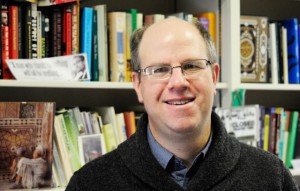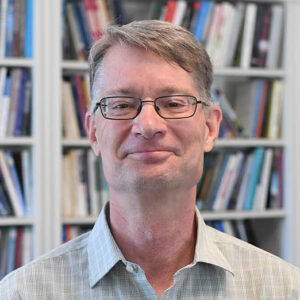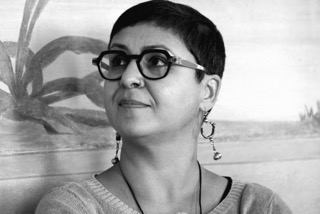by Tasmiah Akter
Wesleyan faculty’s collective expertise spans the globe, and the Office for Intercultural Learning at the Fries Center for Global Studies is pleased to celebrate their international and often multilingual work here in the Wes and the World newsletter. This is the third of a four part series to be highlighted in the coming weeks under these broad categories: World Literature, Economics & Environment, Identity: Cultural & Religious, and STEM & Health. Please enjoy these summaries and be sure to check out any works that pique your interest!

Peter Gottschalk
Religion, Global South Asian Studies, College of Education Studies
Region of Study – India, Britain, the US
Work Title(s): Imperial In/tolerance: Islamophobia in 19th century India, Britain, and the US
From the nineteenth century to today, English-language newspapers often have depicted Muslims to negatively project ideal moral orders. Moreover, editors and publishers in many other instances have portrayed Muslims and Islamic traditions in ways that have negatively justified ideal, normative social orders in all three countries and to propose priorities regarding their governance. Then again, at times some newspapers referenced Muslims as part of their argument for challenging existing norms and establishing a social order defined by religious tolerance and/or a moral order embracing inclusion of the most marginalized. Paradoxically, editors and journalists might reference Muslims and their religious practices as either a threat to or protected by secular norms they sought to validate and valorize.
My current project investigates how, through a global newspaper network, the British empire served as a vector for ideas and emotions promoting Islamophobia, anti-Muslim sentiment, and religious tolerance in ways still evident today. Using Anglophone newspapers published in India, Britain, and the United States in the periods 1796-1807, 1853-1864, and 1911-1923, the research examines both the imaginaries and the emotions perpetuated through reporting. Most importantly, it considers how these helped constitute, reinforce, and challenge normative regimes of social belonging and religious commitment. Newspapers became particularly influential due to a range of global political (e.g., imperial treaties and outposts), technological (e.g., steamships), and infrastructural (e.g., telegraph stations) developments. These mutually reinforcing elements of British imperialism facilitated the coalescence of a globalized Anglophone news network that reciprocally facilitated the empire’s globalizing political and anthropological visions.

Stephen Angle
Philosophy and College of East Asian Studies (CEAS)
Region of Study – China, Russia
Work Title(s): “Концепция прав человека в Китае” [Russian translation of translation of “Human Rights and Chinese Thought”]
My book Human Rights and Chinese Thought: A Cross-Cultural Inquiry was originally published in 2002. A Chinese translation appeared in 2012. The book explores the emergence of human rights discourse in China in the 19th and 20th centuries, and then the debates about human rights that followed. A central goal of the book is to explore the ways in which different cultural-linguistic ethical discourses can interact with and influence one another; I argue that while Chinese human rights discourse has many distinctive elements, throughout it has been constructively engaged with ideas of human rights from other contexts. We can communicate and even critically engage with one another across linguistic and cultural divides. I find it fascinating that the press now publishing the Russian translation feels that there is a Russian-reading audience for these themes right now.
Link to work: С. Энгл. Концепция прав человека в Китае | Bibliorossicapress

Anu Sharma
Division II
Region of Study – South Asia, India
Work Title(s): “Unsettled Borderlands and Imagined Elsewheres in Punjab, India”
In Summer 2023, I initiated an ethnographic study of borderland political ecology, life, and imaginations of pasts and futures in the north Indian state of Punjab. Punjab shares a 553-mile border with Pakistan. Drawn in 1947, this border carved Punjab into two, with roughly two-thirds of the territory awarded to Pakistan and third to India. Since partition, the largely agricultural territory of Indian Punjab, has endured constant uncertainty in the name of national security and development—wars, environmental fallouts of the green revolution, economic challenges of liberalized agriculture and trade, floods, a Sikh separatist movement, cross-border smuggling of weapons and drugs, and the state’s counter-insurgency and military operations. Together, these forces contribute to what I term a permanent “unsettling” of life in the region. I seek to uncover this unsettling in Punjab’s borderland, at once political, ecological, social, and embodied—how it shapes everyday life, the will to move or stay, as well as the remembering of pasts and partition futures—through ethnographic storytelling.

Jeff Rider
Romance Languages & Literatures
Region of Study – France, Belgium, Netherlands, Germany, England, Denmark Work Title(s): The Earliest Genealogies and Histories of the Counts of Flanders and Hainaut / The Usefulness of the Middle Ages
The first volume contains editions and studies of four related genealogies or genealogical histories that were written in the counties Flanders and Hainaut (northern France and Belgium) during the twelfth century, the first during the first decade of the century, the last during its last decade. The four works form a single, large historical-genealogical project extending from the beginning to the end of the twelfth century that enabled the residents of these regions to apprehend their collective identity and provided both reassuring responses to complicated and possibly destabilizing transitions of power in the late-eleventh and twelfth centuries and a historical underpinning for a new status quo.
The second project explains how the study of the past can make us happier (than we would be if we didn’t study it) by developing our motor, emotional and cognitive capacities and, in Paul Ricoeur’s terms, by opening up “new possibilities of being-in-the-world . . . within everyday reality.” It contains chapters on the study of medieval art, literature and history, as well as medieval influences on modern architecture, fashion and music, and efforts to recreate or re-enact medieval life.
Learn more about Jeff Rider: https://wesleyan.academia.edu/JeffRider


